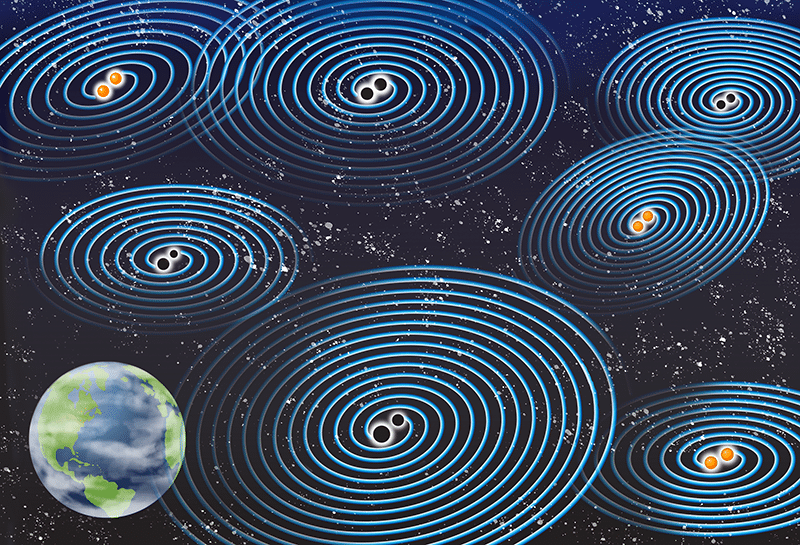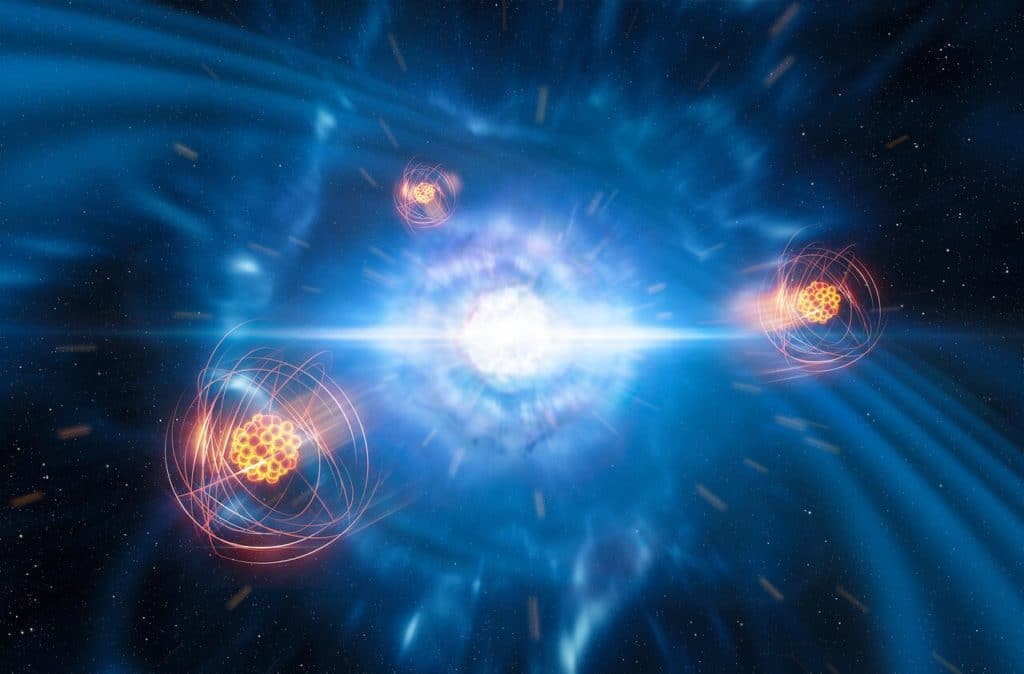In 2015, a discovery occurred that was 100 years in the making… gravitational waves were detected. For the first time, scientists observed ripples in the fabric of spacetime, though from their point of view this likely involved looking at a computer screen with a lot of numbers. This discovery confirmed another aspect of Albert Einstein’s theory of general relativity; that gravity is a product of how mass warps spacetime, and when such mass should move, it will generate waves within spacetime that push and pull on everything in their path, traveling at the speed of light. Despite the description, gravitational waves aren’t something easily found. They are incredibly weak and are usually the result of a cosmic collision or explosion hundreds of millions of lightyears away. So how, then, did we spot them?

Due to the nature of gravitational waves, instruments had to be specially made in order for us to detect such a small change in spacetime. The Laser Interferometer Gravitational Wave Observatory (LIGO) searches for such distortions. LIGO utilizes a pair of detectors located in Livingston, Louisiana, and Hanford, Washington, to measure and pinpoint the origin of incoming gravitational waves. They do so using a laser. Each building is shaped like an L, with both “arms” having a length of 2.5 miles. A laser is shot into a beam splitter that sends light down both arms; this light will hit mirrors placed at the end of each arm and bounce back, reaching the beam splitter, and undergoing interference. When nothing is present to alter the process, the light waves cancel out here and no light reaches the detector, stationed just behind the beam splitter. However, should the length of one of these arms be altered, possibly by a gravitational wave stretching the space the arms occupy, the light waves no longer reach the splitter at the same time, taking them out of interference, and causing light to flicker against the detector.

On September 14th, 2015, a light hit the detector, and our perception of the universe was changed forever. Before this, observations about cosmic events were limited to the light they gave off. This was a disadvantage for scientists trying to piece together cosmic happenings that gave off very little light, such as black holes colliding. A tool like gravitational waves will allow astronomers to see the universe in a much more traditional sense, helping to untangle some of the deep mysteries of space. In this case, LIGO was able to detect two neutron stars colliding. This is the first time we’ve been able to observe the merging of such stars, and this discovery will improve our understanding of how heavy elements came to be in the universe.